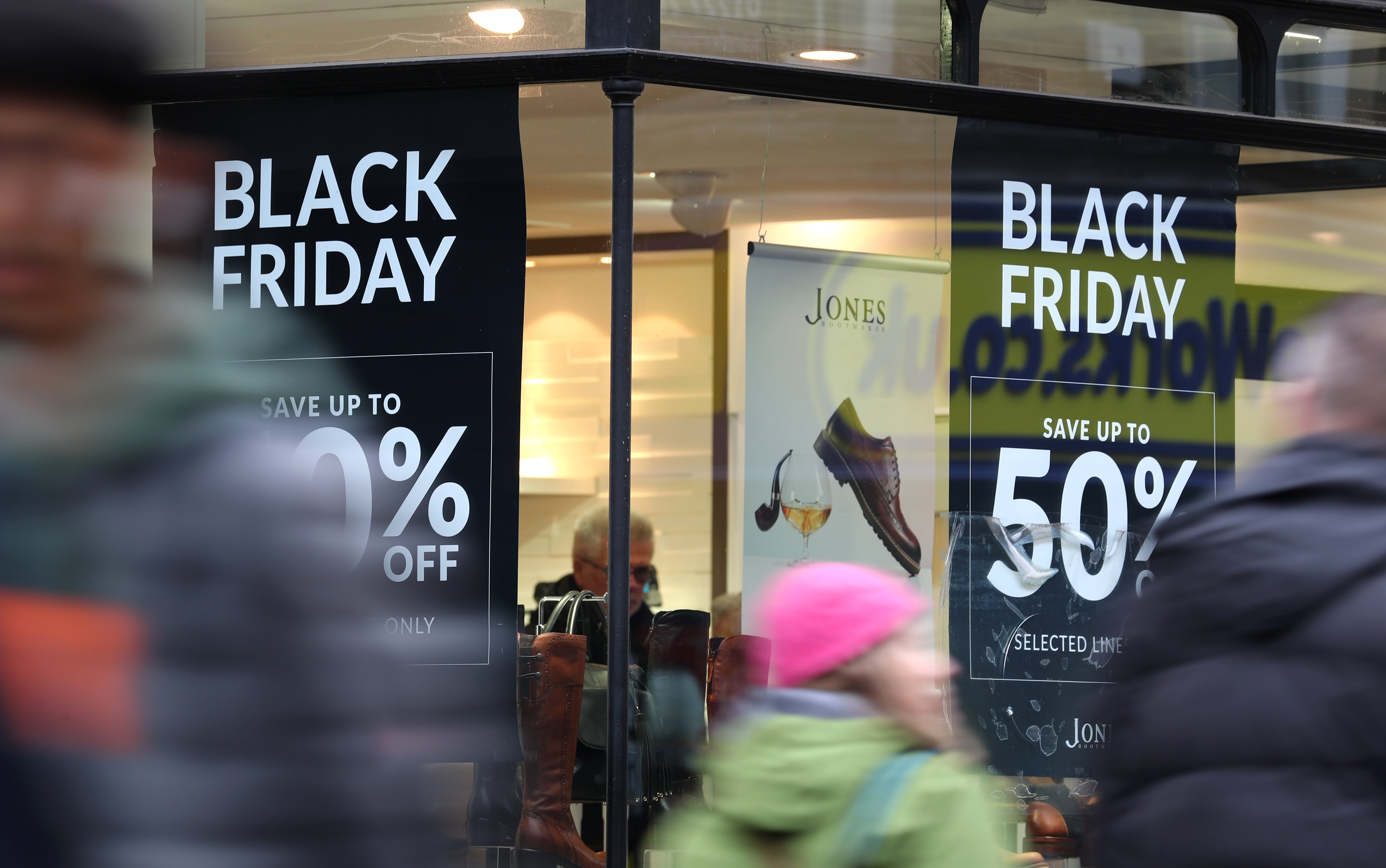Boycott Black Friday if you care about the planet
While some brands are rejecting fast-paced consumerism, it doesn’t go far enough in reducing the impact of impulse buying


Your support helps us to tell the story
From reproductive rights to climate change to Big Tech, The Independent is on the ground when the story is developing. Whether it's investigating the financials of Elon Musk's pro-Trump PAC or producing our latest documentary, 'The A Word', which shines a light on the American women fighting for reproductive rights, we know how important it is to parse out the facts from the messaging.
At such a critical moment in US history, we need reporters on the ground. Your donation allows us to keep sending journalists to speak to both sides of the story.
The Independent is trusted by Americans across the entire political spectrum. And unlike many other quality news outlets, we choose not to lock Americans out of our reporting and analysis with paywalls. We believe quality journalism should be available to everyone, paid for by those who can afford it.
Your support makes all the difference.Black Friday has become infamous for insanely cheap deals, frantic online check outs and apocalyptic images of customers fighting over TV sets. It’s no surprise that, according to a recent survey by idealo.co.uk, nine out of 10 shoppers find Black Friday highly stressful.
The same survey also revealed that 24 per cent of shoppers regret their Black Friday bargains. But the impact of these unwanted purchases goes beyond a tinge of self-loathing when checking your post-Black Friday bank balance.
A report from money.co.uk predicted that online shopping conducted on Black Friday in 2020 would release around 429,000 tonnes of carbon emissions into the atmosphere. Here’s some information to heighten the sick feeling in your stomach: if you overspend only to return half of your order, then items may well end up in landfill rather than be resold.
This year, several companies are offering customers ethical Green Friday deals, donating a percentage of purchases to climate causes or encouraging slower shopping through month-long discounts.
Whilst it’s encouraging to see brands rejecting fast-paced consumerism, are these initiatives enough to counteract the urgent climate disaster? Somehow, any deals affiliated with Black Friday feel slightly tainted, like just another cog in the capitalist machine.
Flashback to three years ago, and I was also one of millions excitedly filling my virtual basket with Black Friday deals. Whilst I wasn’t against charity shop finds, the foundation of my wardrobe was fast fashion - but I gradually began to notice how quickly I fell out of love with items that I had bought on a whim. I felt the Black Friday regret about my purchases all year round.
My solution was to pledge to make second-hand my first choice when going shopping - meaning I would begin by scouring charity shops or using apps such as Depop or eBay, only buying a brand-new item if I exhausted all these options.
Implementing this rule disrupted my shopping habits massively. Finding a second-hand item you truly love takes time - I once spent three months looking for the perfect pair of white wide-leg jeans, and a year on, they’re still the backbone of my wardrobe.
I also discovered the benefit of local groups and online marketplaces for sourcing second-hand items: I found everything from headphones to a speaker to bike lights at a really low cost, or even free. However, travelling around the city to collect something can often feel like an inconvenience in contrast to the instantaneousness of Amazon’s next day home delivery.
But inconveniencing myself was kind of the point. We have become so used to receiving products within hours at the click of a button, that putting in effort to find an item ourselves feels like a waste of time - instead of a valuable solution to the overproduction plaguing our planet.
After I’d begun prioritising second-hand shopping, it felt incongruous to take part in Black Friday. I didn’t feel the need to throw myself into the shopping frenzy to “take advantage” of crazy deals when I’d become used to a more slowed-down and circular approach to acquiring new stuff.
The World Counts reports that if everyone lived like the average American consumer, we would need 5.2 planets to support us. Yet we are barely able to protect the one planet that we have.
During Cop26, worldwide experts highlighted the urgency of taking climate action. Whilst governments must be held responsible for implementing laws to counteract climate change, individual consumers should not deny their power to also make a difference. Pledging to boycott Black Friday would be one step towards breaking our toxic cycle of consumerism - in the name of saving our planet.



Join our commenting forum
Join thought-provoking conversations, follow other Independent readers and see their replies
Comments